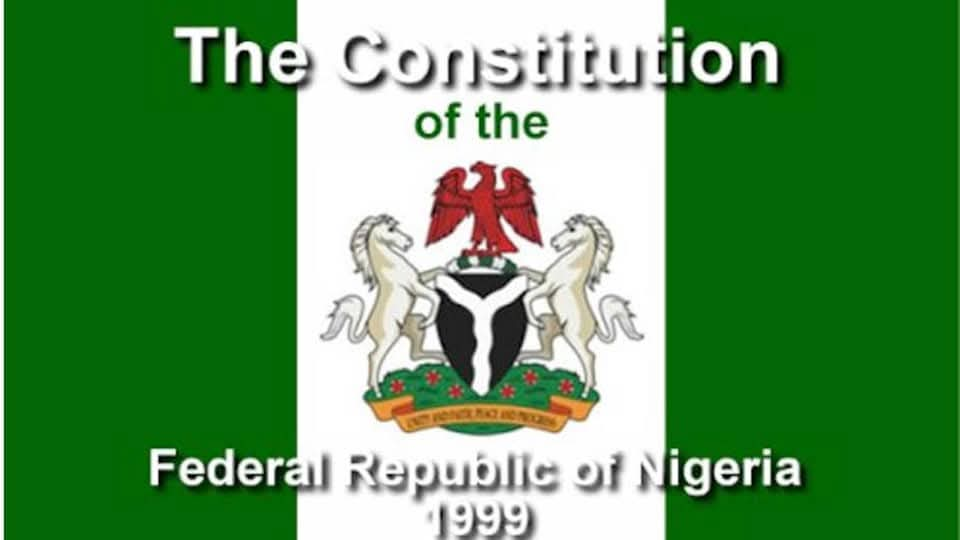The potential return of former U.S. President Donald Trump to the White House is raising concerns among economists and financial analysts in Nigeria.
His proposed tax reforms and tariffs could significantly impact Nigeria’s economy, especially its banking sector and the inflow of foreign direct investment (FDI).
Trump’s agenda, which includes reducing the U.S. corporate tax rate from the current 21% to 15%, echoes the controversial measures introduced during his first tenure under the 2017 Tax Cuts and Jobs Act.
That legislation led to U.S. companies repatriating vast sums of capital—about $777 billion—back to the United States. This outflow of funds had a pronounced effect on developing economies, including Nigeria, whose FDI plummeted from $4.65 billion in 2017 to $2.23 billion in 2018. Analysts fear that history could repeat itself if Trump implements similar policies.
The Nigerian banking industry could face significant headwinds due to Trump’s potential policies. Nigerian banks have long relied on robust FDI inflows to sustain liquidity and capital adequacy.
A reduction in foreign capital would exacerbate existing liquidity challenges and force banks to tighten credit, which could ripple across critical sectors like oil and agriculture.
Business Day has highlighted the dual threat posed by Trump’s proposed tariffs and tax cuts. Nigeria’s oil and agricultural industries, which are heavily dependent on international trade and financing, are particularly vulnerable.
Tariffs on exports and reduced inflows of foreign capital could strain these sectors further, with a domino effect on banks that finance their operations.
Trump’s earlier tax reforms provide a cautionary tale. When the 2017 Tax Cuts and Jobs Act incentivized American corporations to bring their overseas profits back to the United States, developing economies like Nigeria saw a significant withdrawal of investment. The sharp decline in FDI left Nigerian banks scrambling to adjust to a tighter financial environment.
While the 2017 tax cuts were marketed as a boost for the U.S. economy, they left many developing nations struggling with capital flight. In Nigeria, the effects were felt most acutely in the financial sector, where banks faced reduced access to foreign credit lines and funding.
Despite the looming challenges, experts believe that Nigerian banks can adapt and even thrive by leveraging Africa’s growing economic importance. Abayomi Fashina, a finance and tax expert, emphasized that Nigerian banks must focus on diversifying their products and portfolios. Offering tax-efficient financial products could attract investors seeking to navigate the shifting global economic landscape.
Fashina noted that the ability to adapt quickly and implement strong risk management practices would be key for Nigerian banks. By identifying opportunities within Africa’s evolving financial markets, banks could position themselves to cater to U.S. firms seeking diversification beyond their home country.
Africa’s financial landscape is undergoing rapid transformation, driven by technological advancements and increased intra-African trade under agreements like the African Continental Free Trade Area (AfCFTA). Nigerian banks, as key players in the region, have an opportunity to capitalize on this growth. By aligning their strategies with Africa’s broader financial trends, banks can mitigate the risks associated with reduced FDI from the United States.
Experts argue that Nigerian banks must adopt a forward-thinking approach, focusing on long-term investments in technology and innovation. Digital banking, for instance, offers a pathway for financial institutions to expand their reach and tap into underserved markets across Africa.
Fashina stressed that Nigerian banks could emerge stronger by embracing diversification, both in terms of their product offerings and geographical reach. By developing tax-efficient investment vehicles, banks could attract both local and international investors. Additionally, expanding operations into other African countries could offset the impact of reduced FDI from the U.S.
The potential return of Trump to the White House underscores the importance of strategic agility for Nigerian banks. The global economic environment is increasingly interconnected, and changes in one region can have far-reaching consequences. By positioning themselves as leaders in Africa’s financial growth, Nigerian banks can not only weather the storm but also seize emerging opportunities.
The challenges posed by Trump’s potential policies extend beyond the banking sector. Nigeria’s broader economy, particularly its reliance on oil exports, faces significant risks.
Tariffs on Nigerian oil exports to the U.S. could reduce revenue for a country already grappling with fiscal constraints. Similarly, disruptions in agricultural trade could affect food security and economic stability.
Nigerian policymakers must proactively address these challenges by fostering a more resilient economic framework. Encouraging domestic investment, strengthening trade relations with other regions, and supporting local industries are crucial steps to reduce dependence on foreign capital.
As the prospect of Trump’s return to the White House looms, Nigerian banks and the broader economy face a critical juncture. The potential tax reforms and tariffs threaten to repeat the economic disruptions of 2017, placing significant pressure on Nigeria’s financial and trade sectors.
However, with proactive strategies and a focus on Africa’s growing economic potential, Nigerian banks can turn these challenges into opportunities. By diversifying their products, expanding their reach, and investing in technology, they can build resilience and ensure long-term growth.
Ultimately, the key to navigating these uncertain times lies in agility, innovation, and a commitment to leveraging Africa’s immense financial potential. Nigerian banks must rise to the occasion, positioning themselves as vital players in the evolving global economic landscape.











